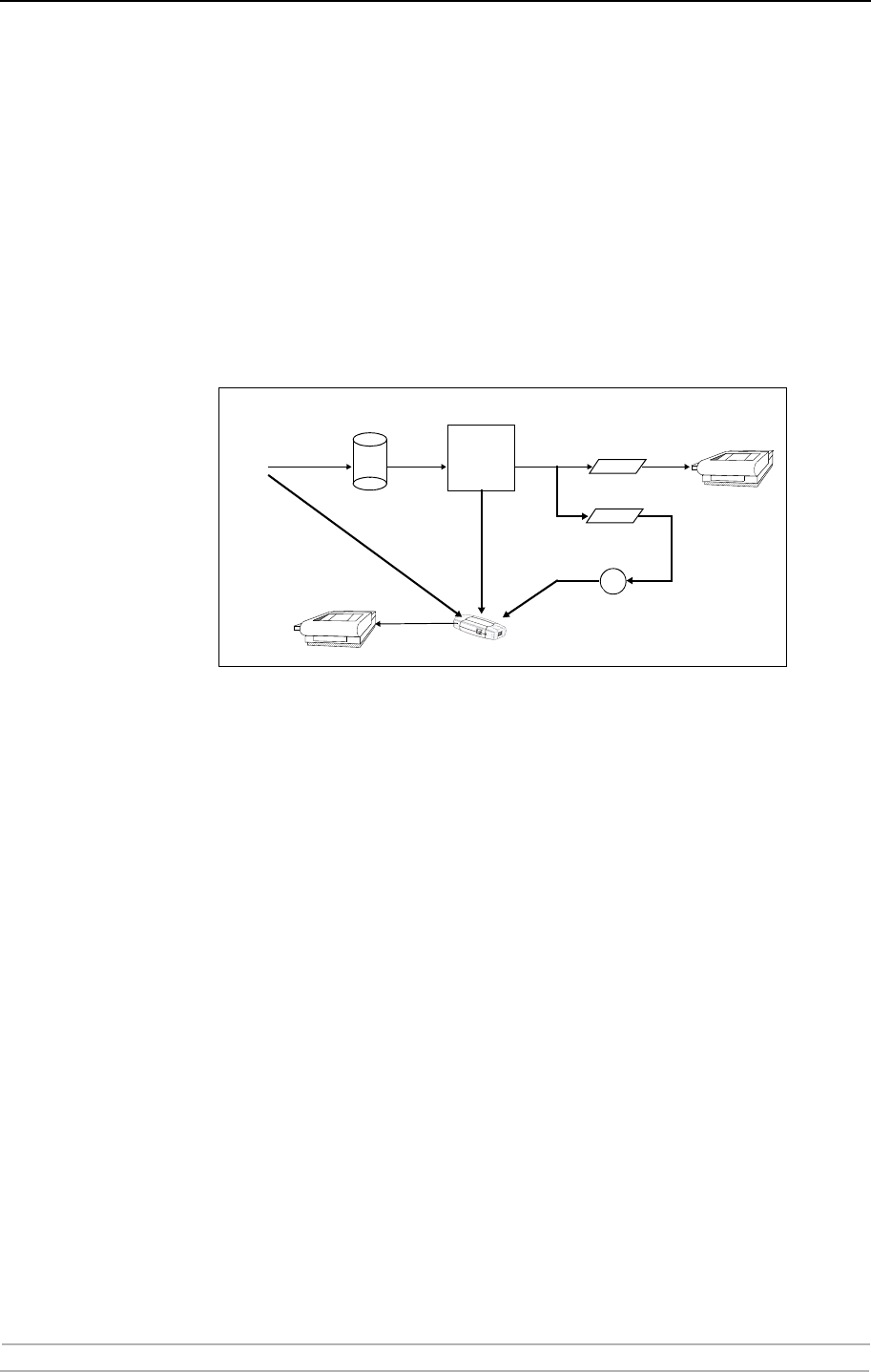
Adding Printers in UNIX/Linux
84 AXIS 5900 User’s Manual
Print Methods on TCP/IP Networks
The AXIS 5900 supports several different print methods in the TCP/IP
environment. axinstall will suggest a print method suitable for your
particular UNIX/Linux system, but you might want to use another method
depending on your printing requirements (banner pages, status logging,
etc).
The diagram below shows the alternative data paths taken by some of the
UNIX/Linux print methods. This illustrates some of the advantages and
limitations of the different methods. Use the following information to
determine which method to adopt.
Illustration of different UNIX/Linux print methods
LPD The Line Printer Daemon is a protocol for transferring print jobs between
hosts. This is the recommended method for UNIX/Linux systems, but
some System V versions do not support LPD.
Advantages:
Easy to set up — install the AXIS 5900 as a remote queue in System V, or
add a remote printer to
/etc/printcap using the rm and rp fields (BSD).
Limitations:
Spooler features, and
printcap or lpr options (BSD) such as multiple
copies, are not available.
FTP The File Transfer Protocol is used for transferring files between hosts.
Advantages:
Uses industry standard network software on the host.
Limitations:
No printer status logging. In the case of BSD it may conflict with other
input or output filters and does not allow both input and output filters. In
System V no filters or interface programs can be used.
File to
Print
Print
Spooler
Filter/
Model
Parallel Port
printer
Printer
Named Pipe
PROS print
daemon
Devices
DIRECT
FTP
RTELNET
LPD FTP
RTELNET PROS B
PROS A
Axis Network Print Server
Interface
Directly
connected


















